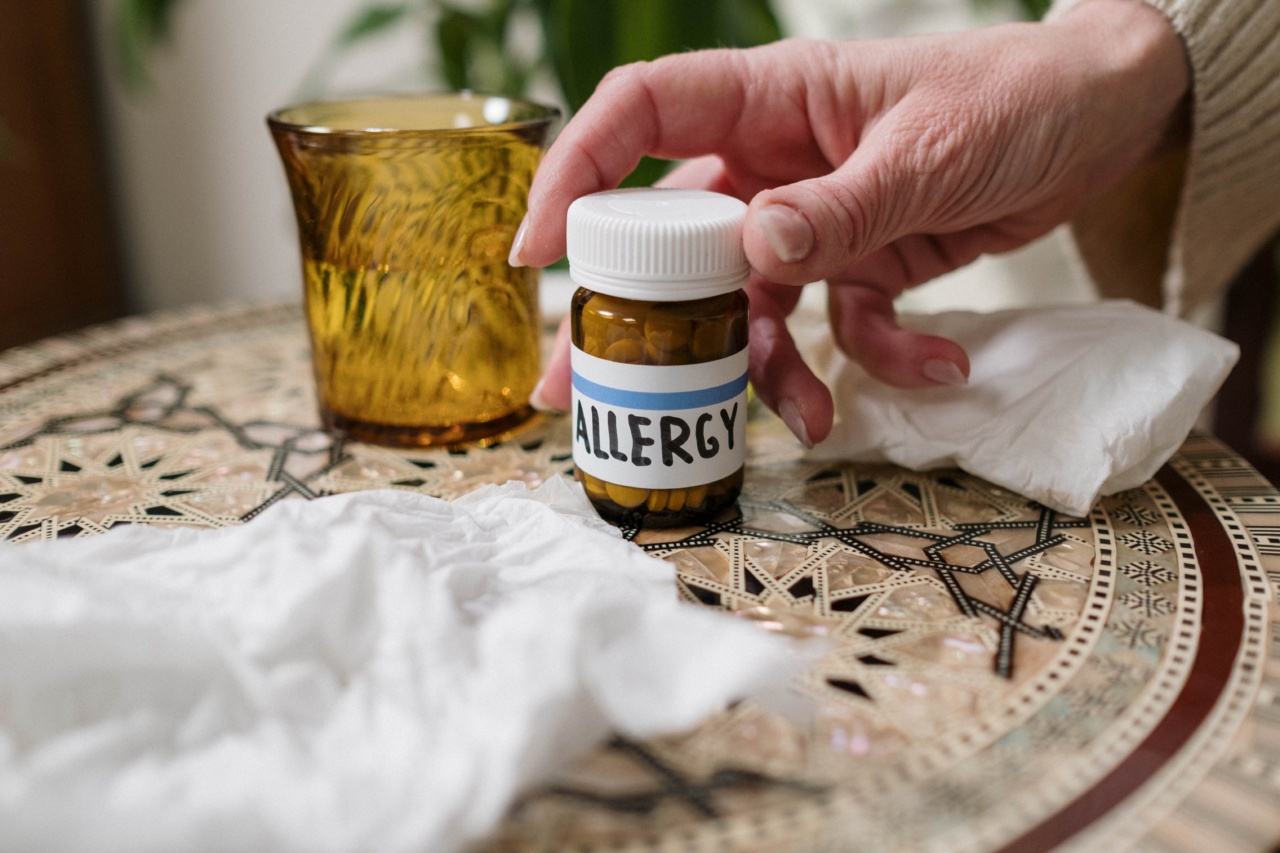As the leaves begin to fall and the weather starts to change, many people look forward to the beauty and coziness of the autumn season. However, for those who suffer from seasonal allergies, autumn can also bring about a range of uncomfortable symptoms.
From sneezing and itchy eyes to congestion and fatigue, autumn allergies can be a real nuisance. In this article, we will discuss some effective ways to prevent and manage autumn allergies so that you can enjoy the season to the fullest.
Understanding Autumn Allergies
Autumn allergies, also known as fall allergies or seasonal allergies, are typically caused by the release of pollen from various plants and weeds during this time of year.
Ragweed is one of the most common sources of fall allergies, but other culprits include goldenrod, chrysanthemums, and mold spores, which thrive in damp and decaying vegetation.
When you are exposed to these allergens, your immune system reacts by producing antibodies, triggering the release of histamines. Histamines are responsible for most allergy symptoms, such as itching, sneezing, congestion, and watery eyes.
Preventive Measures
Preventing exposure to allergens is key to managing autumn allergies effectively. Follow these tips to minimize your exposure:.
1. Monitor Pollen Counts
Stay informed about daily pollen counts in your area. Many weather websites and apps provide this information. On high pollen days, try to limit your time outdoors, especially during peak pollen hours.
2. Keep Windows Closed
During autumn, it’s tempting to let in the cool breezes, but open windows can invite allergens into your home. Keep windows closed, especially in the mornings and on windy days, to reduce exposure to pollen.
3. Invest in an Air Purifier
An air purifier with a HEPA filter can help remove allergens from indoor air. Place one in your bedroom and any other frequently used rooms to create a safe haven from allergens. Remember to clean and replace filters regularly.
4. Wash Bedding Regularly
Bedding, especially pillows and pillowcases, can harbor allergens. Wash them in hot water regularly to remove any allergens that may have collected on them.
5. Avoid Line-Drying Clothes
While line-drying clothes can be energy-efficient and give your laundry a fresh scent, it can also expose your clothes to outdoor allergens. Use a clothes dryer instead to reduce the risk of bringing allergens indoors.
Managing Allergy Symptoms
If despite your best efforts, you still experience autumn allergy symptoms, there are several ways to manage them:.
1. Over-the-Counter Medications
Antihistamines, nasal sprays, and eye drops available over-the-counter can help relieve allergy symptoms.
However, it is essential to follow the instructions and consult a pharmacist or healthcare professional if you have other medical conditions or take other medications.
2. Allergen Immunotherapy
Allergen immunotherapy, commonly known as allergy shots, can help train your immune system to tolerate allergens better. It involves regular injections of small amounts of allergens over a period of time under the supervision of an allergist.
3. Nasal Irrigation
Nasal irrigation, using a neti pot or saline rinse, can help flush out allergens and relieve nasal congestion. Make sure to use sterile, distilled, or previously boiled water to avoid any risk of infection.
4. Steam Inhalation
Inhaling steam from a bowl of hot water or using a humidifier can help soothe irritated nasal passages and ease congestion. Adding a few drops of eucalyptus or peppermint oil to the water can provide additional relief.
5. Allergen-Proof Your Home
Take steps to minimize allergens in your home by regularly vacuuming carpets and upholstered furniture, using allergen-proof covers for mattresses and pillows, and keeping pets off the furniture and out of the bedroom.
When to Seek Medical Advice
If your allergies significantly impact your quality of life, it is advisable to consult an allergist or healthcare professional. They can help determine the specific allergens causing your symptoms and develop a personalized treatment plan.
Conclusion
Autumn allergies can put a damper on the season if not managed properly.
By taking preventive measures to reduce exposure to allergens and using appropriate management techniques, you can minimize the impact of autumn allergies and enjoy the beauty and charm that fall has to offer.



























